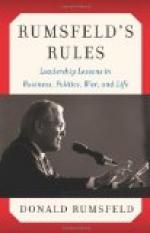This design gave no promise of effecting the dominant task, the crushing of the Boer army, though it aimed at grappling in detail with several of the subordinate tasks; but its execution proved as indecisive as its conception. In Natal the main force under Sir Redvers Buller himself completely failed in the attack on the Boer army at Colenso on December 15th; Lord Methuen’s advance for the relief of Kimberley came to a standstill at the Modder River, and met with a serious repulse at Magersfontein; while the smaller parties of Gatacre and French have made little headway against the Free State troops and the rebellious Cape farmers.
The fifth division, the bulk of which was directed to Natal, has been added to Sir Redvers Buller’s force, without having enabled him as yet to strike the decisive blow or even to prevent a determined assault upon Ladysmith by the Boer army. That assault is believed to be now impending, and its delivery will close the second chapter of the war. If Sir Redvers Buller can win his battle in Natal while Sir George White is still unconquered, the military power of the Boers will receive a great shock, and the issue of the war will no longer be doubtful, though its end may be distant. But if Sir Redvers Buller should again fail the result must be to leave Sir George White’s force in extreme peril, to give the Boer forces the spirit of a veteran and victorious army, and to encourage the Dutch element at the Cape to take an active part against the British.
This is the situation which confronts Lord Roberts on his arrival at the Cape. The problem bears a general resemblance to that which Sir Redvers Buller had to solve at the beginning of November, but there are important differences. Lord Roberts has in hand only a brigade, the twelfth or first of the sixth division, which has just reached Cape Town; he has to expect the rest of the sixth division, the seventh, a possible eighth, and a considerable extra force of mounted troops and of artillery; but the arrival of these forces will be gradual, and he will have no mass of fresh troops until the beginning of next month. Even then he may not have the means of feeding on the march the newly-arrived divisions. Meantime a British victory in Natal would be more valuable, a British defeat there more disastrous than ever. The effort ought to be made if there is a reasonable probability of success, for though failure would have disastrous consequences, material and moral, the admission of helplessness involved in making no attempt would depress the hearts of the British troops perhaps as fatally as a lost battle.
The first decision required is whether Sir Redvers Buller’s force is to try its fate once more. In all probability that decision has been made while Lord Roberts was at sea, and according to the event will be the situation with which the new Commander-in-Chief will have to deal. A victory in Natal will make his task easy; a failure will put before him a problem the fortunate solution of which would be a triumph for any commander.




